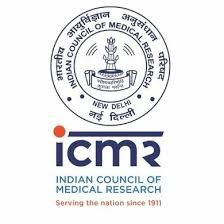The Indian Council of Medical Research (ICMR), in collaboration with the Madras Diabetes Research Foundation (MDRF), has established the country’s first diabetes biobank in Chennai. This state-of-the-art repository aims to support advanced research into diabetes and its related disorders by collecting, processing, storing, and distributing biological samples.
Located at the MDRF, the biobank is designed to aid scientific studies with the approval of the ICMR. It will play a pivotal role in identifying the causes of diabetes, exploring variations of the condition prevalent in India, and improving diagnosis and treatment strategies, according to Dr. V. Mohan, Chairman of MDRF and Dr. Mohan’s Diabetes Specialities Centre.
The biobank holds blood samples from two major ICMR-funded studies: the ICMR-India Diabetes (ICMR-INDIAB) study, conducted across India between 2008 and 2020, and the ongoing registry of individuals with young-onset diabetes, which began in 2006. These samples encompass various types of diabetes, including Type 1, Type 2, and gestational diabetes, to facilitate future research.
The ICMR-INDIAB study, one of India’s largest epidemiological surveys on diabetes, involved 1.2 lakh individuals across 31 states and Union territories. Conducted between 2008 and 2020, the study revealed that 10.1 crore Indians are diagnosed with diabetes, while 13.6 crore have prediabetes. Additionally, it highlighted alarming rates of hypertension (31.5 crore), generalised obesity (25.4 crore), and abdominal obesity (35.1 crore).
The findings also showed a stabilisation of the diabetes epidemic in socio-economically advanced states but an increase in less-developed regions. However, only 43.2% of the population has heard of diabetes, underscoring the urgent need for large-scale awareness and education campaigns.
The registry of individuals with young-onset diabetes includes 5,546 participants (49.5% male, 50.5% female) from 205 centres linked to eight regional diabetes centres across India. Type 1 diabetes (T1D) and Type 2 diabetes (T2D) were the most common forms, with the average age at diagnosis being 12.9 years for T1D and 21.7 years for T2D. Alarmingly, 56.1% of T2D cases had already experienced hospitalisation by the time they were registered.
The diabetes biobank will enable groundbreaking research, including the identification of novel biomarkers for early diagnosis and the development of personalised treatment strategies. It also supports longitudinal studies to track diabetes progression and complications, contributing to better prevention and management practices.
As reported by economictimes, the initiative is a step towards addressing the growing diabetes burden in India, which continues to rise with rural-to-urban migration, low levels of physical activity, and limited public awareness. The biobank could also foster global collaborations in diabetes research, similar to the renowned UK Biobank, which has become a vital resource for biomedical studies worldwide.
Experts emphasize the need to involve private agencies in biobank development and adopt advanced technologies for cost-effective and efficient specimen storage, preservation, and data management to support long-term research efforts.























